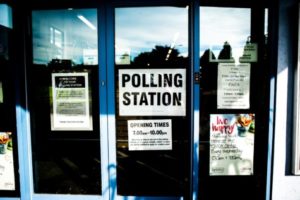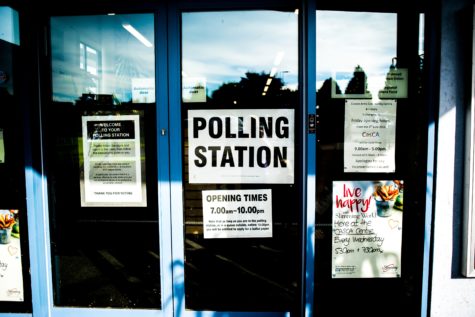NEW HAVEN, Conn. — While it’s long been theorized that citizens are more likely to honor the law if they actively participate in the political process, a new study finds that voting, in and of itself, does not lead to less crime.
Researchers at Yale looked at a sample of about 550,000 non-white voters, aged 18 to 20, during the 2010 election cycle.

Some of the young individuals examined were given non-partisan voter registration materials before the election, which the researchers were able to combine with data on who ultimately voted.
Additional data pertaining to incarceration rates was sourced from government records.
While those who received the literature prior to the election were more likely to vote on election day, they were no less likely to commit a crime after going to the polls, the researchers found.
Still, of the individuals studied who voted, the incidence of those under state supervision— defined as incarceration, parole, or probation — was 55 percent lower two years later than it was for those didn’t exercise their right to vote.
“While voting is a worthy activity, it does not appear to prevent people from committing crimes or set them on a virtuous path toward good citizenship,” explains Gregory A. Huber, the study’s co-author and a political science professor at the university, in a news release.
“This does not mean that participatory democracy has no positive transformative effects on people, but it suggests that scholars should reconsider whether the simple act of voting or other civic engagement is sufficient to promote other pro-social behaviors,” he adds.
Ultimately, receiving voting materials prior to the election increased one’s likelihood of casting a ballot by 19 percent. Importantly, however, this decrease in time served did not indicate a fall in subsequent criminality, post-election.
“Our findings have important policy implications,” says Huber. “For example, if voting prevented criminal behavior, then measures encouraging people to vote would be a cost-effective way to reduce incarceration. Unfortunately, our study shows this kind of intervention is unlikely to succeed.”
The researchers acknowledge that the act of voting might carry a number of benefits for American citizens, but expecting it to fundamentally reform how one conducts themselves is asking a bit too much.
The full study was published in the journal Political Behavior.

Comments
Comments are closed.